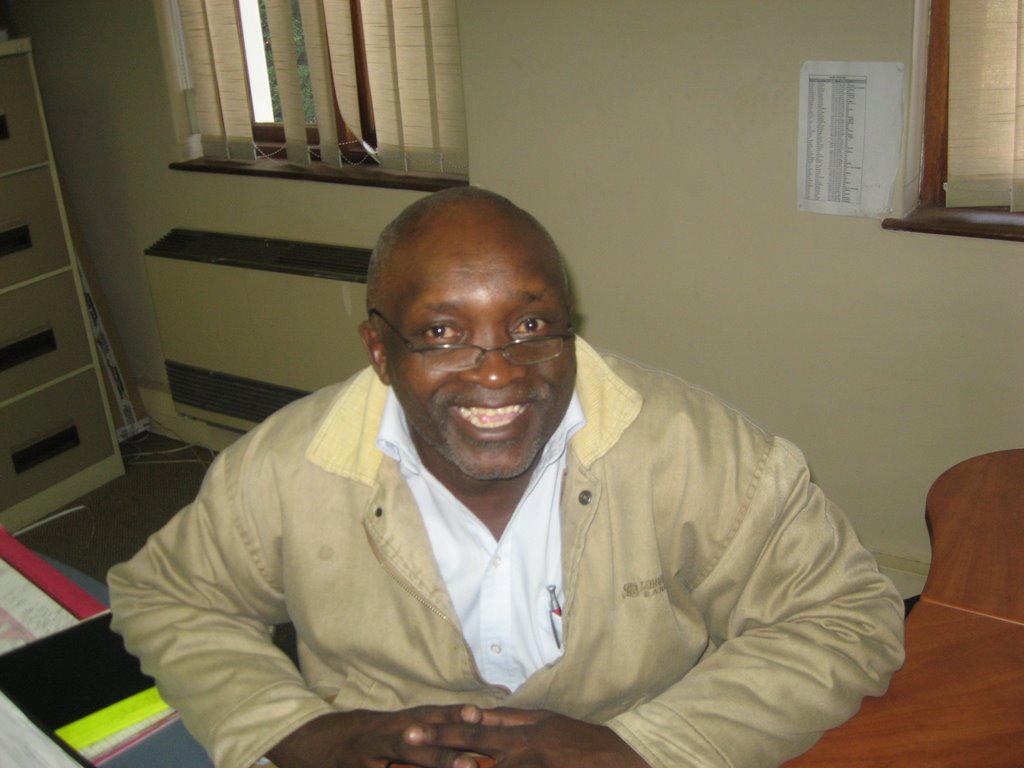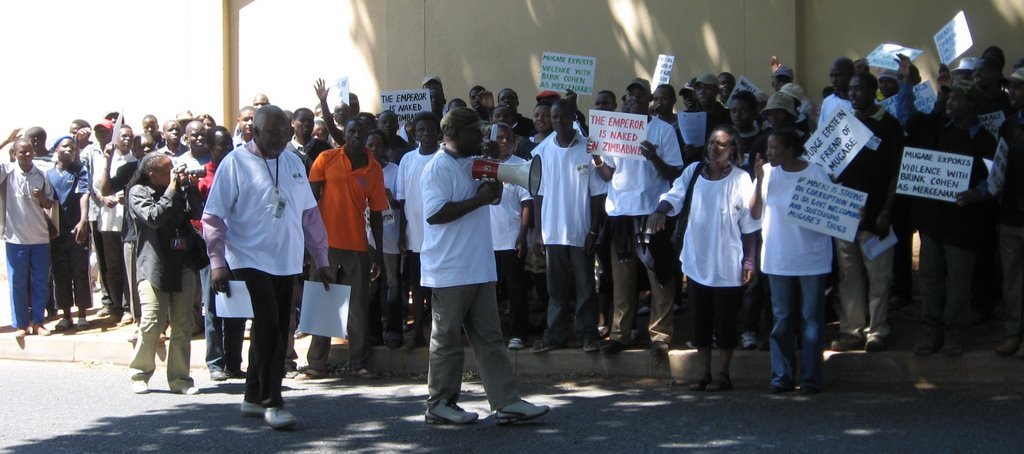| The year was 1979 and on Radio Cameroon (there was no TV then) Zimbabwe was a permanent if not dominant fixture on the international news. The racist Ian Smith regime had been replaced by the black government of Bishop Abel Muzorewa – a suspect government which for all intents and purposes was merely an extension of the racist Smith regime. Zimbabwean nationalists in exile led by Joshua Nkomo and Robert Mugabe fiercely challenged the farce. And the rest of the world agreed. In the end, Muzorewa was dragged kicking and screaming to London for talks at Lancaster House under the auspices of Lord Carrington. One didn't need to be a grown up back then to understand what was at stake; white supremacist rule (hiding behind Muzorewa's black face) vs. black majority rule represented by Joshua Nkomo and Robert Mugabe. How we envied Zimbabwe when the Lancaster talks ended with an agreement for new internationally supervised elections! This was a time when Cameroon was solidly under the control of a dictator called Ahmadou Ahidjo; an era of rule by terror which a generation of Cameroonians cannot begin to relate to and even occasionally romanticize – the result of a quarter of a century of misrule by Ahidjo's successor Paul Biya…. And how we again turned green with envy when Zimbabwe became independent on April 18, 1980 after free and fair elections that saw Mugabe besting his old comrade in arms Joshua Nkomo! Racist Rhodesia was finally dead and black-led Zimbabwe born. Even the great Bob Marley, that immortal icon of our generation, showed up for the party to sing his famous tribute to the new nation: Every man gotta right to decide his own destiny, And in this judgement there is no partiality. So arm in arms, with arms, we'll fight this little struggle, 'Cause that's the only way we can overcome our little trouble.
…
Natty Dread it in-a (Zimbabwe); Set it up in (Zimbabwe); Mash it up-a in-a Zimbabwe (Zimbabwe); Africans a-liberate (Zimbabwe), yeah. But that euphoria did not last long and the honeymoon was soon over. In 1982 the affable Joshua Nkomo was accused for attempting to overthrow Mugabe's regime. Mugabe then unleashed a six-year reign of terror in Nkomo's native Matabeleland where, according to some estimates, the North-Korean trained Fifth Brigade allegedly killed about 40,000 people – nearly twice the number who died during the war of liberation. Mugabe called the campaign "Operation Gukuruhundi", meaning "the wind that sweeps away the chaff". Zimbabwe had lost its luster. And suddenly, Paul Biya's Cameroon felt a million times safer … and freer!!! No more internal power struggle; We come together to overcome the little trouble. Soon we'll find out who is the real revolutionary, 'Cause I don't want my people to be contrary. By the time Mugabe got his way and imposed one-party rule in the late eighties, Zimbabwe was faithfully following that disheartening political blueprint which newly-independent African states used in the 1960s; excessively high hopes at the birth of the nation followed by a short honeymoon; then the imposition of one-man-one-party rule and the jailing of political opponents; the pauperization of the masses and the illicit enrichment of a select few; the institution of a culture of fear and brutal repression; economic stagnation and the collapse of the middle class; the descent into the abyss and the loss of innocence. To divide and rule could only tear us apart; In everyman chest, mm - there beats a heart. So soon we'll find out who is the real revolutionaries; And I don't want my people to be tricked by mercenaries But the worse was yet to come with the bungled land distribution campaign and Mugabe's maniacal obsession with hanging to power whatever the cost. Whatever one's take on the historical legitimacy (or lack thereof) of the land distribution campaign, it is now evident that this was a fly-by-night operation whose implementation was driven primarily by cynical political and populist motives. This was not a carefully planned program aimed at rectifying the errors of the past and at jump-starting the Zimbabwean economy. The end result is there for all to see. As Zimbabwean Bishops lament in a recent pastoral letter: "Following a radical land reform programme seven years ago, many people are today going to bed hungry and wake up to a day without work. Hundreds of companies were forced to close. Over 80 per cent of the people of Zimbabwe are without employment. Scores risk their lives week after week in search of work in neighbouring countries. Inflation has soared to over 1,600 per cent, and continues to rise, daily. It is the highest in the world and has made the life of ordinary Zimbabweans unbearable…" The downhill slide would continue with the mass eviction of "illegal dwellers" across the country in the infamous "operation Murambatsvina" (get rid of the filth) of 2005. The operation, which had strong political and partisan undertones, only worsened the socio-economic situation in the country. According a United Nations fact finding mission: "It estimated that some 700,000 people in cities across the country have lost either their homes, their source of livelihood or both. Indirectly, a further 2.4 million people have been affected in varying degrees. Hundreds of thousands of women, men and children were made homeless, without access to food, water and sanitation, or health care. Education for thousands of school age children has been disrupted. Many of the sick, including those with HIV and AIDS, no longer have access to care. The vast majority of those directly and indirectly affected are the poor and disadvantaged segments of the population. They are, today, deeper in poverty, deprivation and destitution, and have been rendered more vulnerable." In recent months, Mugabe has upped the ante on political repression and recklessness as he uses every bloody trick in the book hang on to power in perpetuity; the hounding, jailing, torture and even murder of anyone who is rightly or wrongly considered an enemy of the regime is now a national hobby. Today, Zimbabwe is a shadow of its old self, a fairytale transformed into a gory nightmare right before our eyes. That rainbow nation where black and white were supposed to live happily ever after, where political opponents were supposed to carry on with the business of nation building without fear or repression, is now a distant and even laughable dream. Zimbabwe has gone full circle, right back to the worst days of good old Rhodesia as the Bishops point out in their letter: "None of the unjust and oppressive security laws of the Rhodesian State have been repealed; in fact, they have been reinforced by even more repressive legislation… in particular. It almost appears as though someone sat down with the Declaration of Human Rights and deliberately scrubbed out each in turn. [S]oon after Independence, the power and wealth of the tiny white Rhodesian elite was appropriated by an equally exclusive black elite, some of whom have governed the country for the past 27 years through political patronage. Black Zimbabweans today fight for the same basic rights they fought for during the liberation struggle. It is the same conflict between those who possess power and wealth in abundance, and those who do not; between those who are determined to maintain their privileges of power and wealth at any cost, even at the cost of bloodshed, and those who demand their democratic rights and a share in the fruits of independence...." Zimbabwe, says one news dispatch, "…is reaching the end game, witnessing the last, desperate throes of a regime that has destroyed one of Africa's few successful economies, plunged millions of people into grinding poverty and led to the deaths of tens of thousands from malnutrition and lack of medical care." This view is shared by the Bishops who warn that: "The confrontation in our Country has now reached a flashpoint. As the suffering population becomes more insistent, generating more and more pressure through boycotts, strikes, demonstrations and uprisings, the State responds with ever harsher oppression through arrests, detentions, banning orders, beatings and torture. In our judgement, the situation is extremely volatile." The Bishops add that what Zimbabwe desperately needs is "a new people-driven Constitution that will guide a democratic leadership chosen in free and fair elections that will offer a chance for economic recovery under genuinely new policies."
For that to happen, African countries, particularly those in the Southern African region led by South Africa, must bring pressure to bear on Mugabe. Unfortunately they have been reluctant to openly take on Mugabe, preferring a failed behind-the-scenes diplomacy that has only emboldened Mugabe.
As we look at the situation unfolding in Zimbabwe we cannot help but be very sad at the lost opportunities, the broken promises and the shattered dreams. When and how will it end? Will Zimbabweans finally get the right to decide their own destiny as Bob Marley urged back in 1979? Will Thabo Mbeki and other African leaders stop pussyfooting and finally live up to their historic responsibility to the Zimbabwean people by calling Mugabe to order? How much longer will this horror movie last? How much more of this punishment can the people of Zimbabwe endure? | 







No comments:
Post a Comment